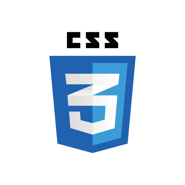See how we helped simplifying the Appraisal System of an IT company
The Client
As one of the premier IT service providers in the USA, our client stands out for their exceptional expertise and comprehensive range of services. With a highly skilled team of over 100 dedicated professionals, they are committed to delivering top-notch IT solutions to meet the unique needs of their customers.
Challenges
Operating without an appraisal system software presented several challenges for our client. Here are some potential difficulties they encountered:
Performance Evaluation:
Without a dedicated appraisal system, evaluating and tracking the performance of a large team can become a time-consuming and subjective process. It may be challenging to gather accurate and consistent data on individual performance, leading to potential biases or inconsistencies in evaluations.
Feedback and Communication:
Providing timely and constructive feedback to employees becomes more challenging without a centralized system. Managers may struggle to document and communicate feedback effectively, resulting in a lack of clarity and missed opportunities for improvement.
Goal Setting and Alignment:
An appraisal system software often facilitates the process of setting individual and team goals, aligning them with overall organizational objectives. Without such a system, it can be challenging to ensure that employees' goals are well-defined, measurable, and contribute to the company's strategic direction.
Skill Development and Training:
Tracking and managing employee training and skill development can be cumbersome without an appraisal system. It becomes more challenging to identify skill gaps, plan relevant training programs, and monitor progress towards skill enhancement.
Recognition and Rewards:
Recognizing and rewarding employee performance is vital for maintaining motivation and engagement. Without an appraisal system software, it can be difficult to track and acknowledge employees' achievements consistently, potentially leading to demotivation and dissatisfaction.
Succession Planning and Career Development:
Without a structured appraisal system, identifying high-potential employees and planning for their career growth becomes more complex. It may be challenging to spot emerging leaders, determine their readiness for new roles, and provide them with appropriate development opportunities.
Data Analysis and Decision-Making:
An appraisal system software often provides valuable data and insights that help in analyzing performance trends, identifying areas for improvement, and making informed decisions. Without such data, the IT service provider may find it challenging to assess the overall performance of the organization and make strategic adjustments.
Problem Statement
Our client, with over 100 employees, lacks an appraisal system software, leading to inefficient performance evaluation, limited feedback and communication, inadequate goal setting and alignment, and a lack of recognition and rewards. The absence of a centralized system hinders the organization's ability to assess and improve employee performance, impeding productivity, employee development, and overall organizational success.
Our Solution
By thoroughly analyzing the client’s requirement, we concluded to design an Appraisal System through PHP which could get installed on each of his employees’ computers and from where they could manage their performances. Here, in this software, the employees would be asked to enter the estimated time and actual time taken for the completion of each project. It would calculate the in-time, out-time, estimated time and the exact time of the employee.
Based on these calculations the performance will be measured, and values will be stored in our SQL database. Not only this, but it would also calculate the average time in case more than one employee is assigned the same task. It would even have a feature where the team leader could also give the estimated time value for each of his teammates. In case, there is much difference in the estimated time of a team member and that of a team lead’s value for that employee, an average of both will determine the performance.
Features
The appraisal system designed by us incorporates a range of features to facilitate fair, objective, and meaningful performance evaluations. Here are some key features commonly found in our appraisal system:
Goal Setting:
The system allows the establishment of clear and measurable goals for employees, aligning them with the organization's objectives. It enables managers and employees to define specific targets and track progress towards achieving them.
Performance Evaluation:
The appraisal system provides a structured framework for assessing employee performance. It supports the evaluation of key performance indicators (KPIs) and competencies relevant to each employee's role, enabling objective and consistent assessments.
Continuous Feedback:
The system facilitates ongoing feedback exchanges between managers and employees. It allows regular communication and documentation of feedback, both formal and informal, to support performance improvement, skill development, and employee engagement.
Self-Assessment:
A self-assessment component empowers employees to evaluate their own performance, reflect on strengths and areas for improvement, and provide input for the appraisal process. It encourages employee involvement and fosters a sense of ownership in the evaluation process.
360-Degree Feedback:
Our effectively designed appraisal system incorporates feedback from multiple sources, including peers, subordinates, and customers, in addition to the manager's assessment. This multi-rater feedback helps provide a comprehensive and well-rounded view of an employee's performance and behavior.
Performance Metrics and Analytics:
The system offers data-driven insights and performance analytics. It generates reports and dashboards that allow managers to analyze trends, identify patterns, and make informed decisions regarding performance management and talent development.
Development Planning:
The appraisal system supports the creation of personalized development plans for employees based on their performance feedback and career aspirations. It enables managers and employees to identify training needs, set development goals, and track progress over time.
Recognition and Rewards:
The system includes mechanisms for recognizing and rewarding exceptional performance. It allows for the identification of top performers and facilitates the allocation of incentives, promotions, or other forms of recognition to motivate and retain talent.
Documentation and Record-Keeping:
Our appraisal system maintains accurate and secure records of performance evaluations, feedback, and development plans. It ensures a historical record of employee performance, simplifies administrative tasks, and supports decision-making processes.
Integration with HR Systems:
Our appraisal system seamlessly integrates with other HR systems, such as employee databases, payroll, and talent management platforms. This integration streamlines processes, reduces manual data entry, and ensures data consistency across HR functions.
Technology Used
.png?width=185&height=185&name=Master%20Mind%20Consultant%20Logo%20(1).png)
|

|

|

|
.png?width=185&height=185&name=Master%20Mind%20Consultant%20Logo%20(2).png)
|
Outcome
Performance Improvement:
The appraisal system helped drive performance improvement by providing regular feedback and evaluation of employees' strengths and areas for development. Through constructive feedback and goal setting, employees can focus on enhancing their skills, addressing performance gaps, and consistently improving their output. This leads to increased productivity and better overall performance at both the individual and organizational levels.
Employee Engagement and Satisfaction:
It helped promote employee engagement and satisfaction. By offering a platform for open communication and recognition, employees feel valued, motivated, and empowered. They gain a better understanding of their role in achieving organizational objectives, fostering a sense of purpose and commitment to their work. Engaged employees are more likely to be loyal, productive, and actively contribute to the success of the organization.
Talent Development and Succession Planning:
Appraisal system enables organizations to identify high-potential employees and create personalized development plans for their career growth. By evaluating employees' performance, skills, and potential, organizations can identify future leaders and invest in their development. This supports succession planning, ensuring a pipeline of skilled individuals ready to take on key roles within the organization as vacancies arise. Effective talent development leads to a stronger workforce and continuity in leadership, enhancing the organization's long-term success.
